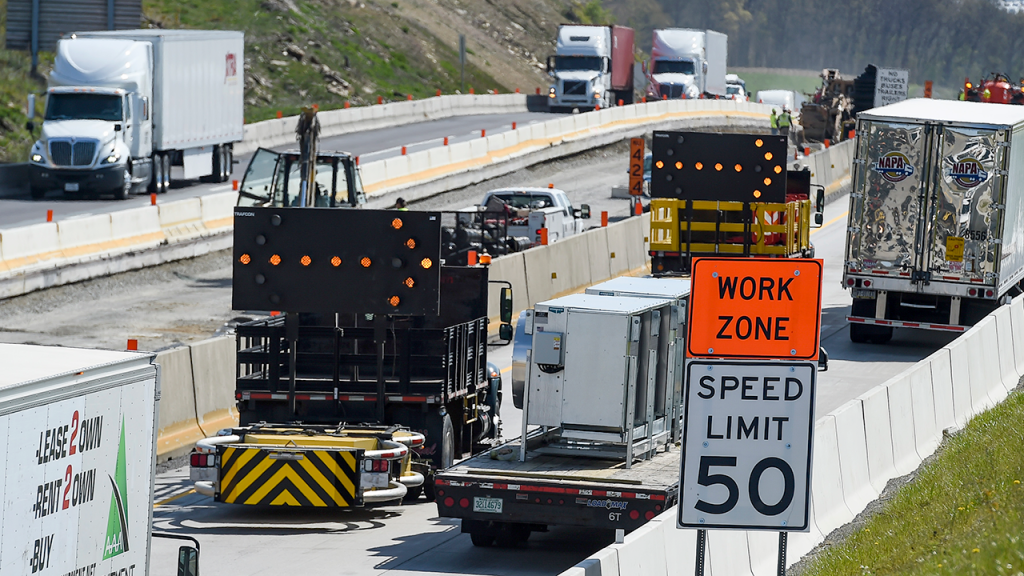Illegal Immigrant Trucker Arrest Raises Questions About Pennsylvania’s Driver Licensing System
In a concerning development that highlights potential gaps in Pennsylvania’s commercial driver licensing system, an Uzbek illegal immigrant with alleged terror ties was arrested in Kansas while holding a valid Pennsylvania commercial driver’s license (CDL). This incident has sparked a heated debate among state lawmakers who claim they had warned officials about this very issue just days before the arrest.
Pennsylvania State Senator Jarrett Coleman, who chairs the Senate Intergovernmental Operations Committee, revealed that he and several colleagues had sent a formal letter to PennDOT Secretary Mike Carroll seeking answers about how illegal immigrants were obtaining CDLs despite supposedly rigorous identity verification processes. The timing couldn’t have been more telling – just ten days before the arrest of Akhror Bozorov, the Uzbek national in question. Coleman described the situation as “deeply disturbing but not surprising,” suggesting it reflects a pattern where the Shapiro administration prioritizes “political optics over public safety.” His concerns weren’t isolated, as the letter was co-signed by several Republican state senators including Doug Mastriano, Kristin Phillips-Hill, and Dawn Keefer, all seeking clarification on PennDOT’s verification procedures.
The lawmakers’ inquiry wasn’t random – it was prompted by a troubling October incident where about a dozen illegal immigrants were among approximately 80 non-citizen truckers arrested in Oklahoma, with several holding Pennsylvania-issued commercial licenses. In their letter to Secretary Carroll, the senators requested specific information on over a dozen points, including whether PennDOT had reviewed the files of CDL holders arrested by ICE since October, whether those drivers were properly verified during the licensing process, and if the department was utilizing the required federal “systematic alien verification for entitlements” to confirm immigration status. They also asked about PennDOT’s compliance with a U.S. Department of Transportation directive to halt issuances of “non-domiciled CDLs” (though this directive was later overturned by a federal judge), and inquired about internal audits, oversight mechanisms, and any assessment of public safety risks associated with current procedures.
In response to the growing controversy, a PennDOT spokeswoman confirmed receipt of Coleman’s letter and assured that the department follows applicable federal and state processes when issuing licenses to non-citizen applicants. According to the spokeswoman, this includes reviewing necessary immigration documents and confirming legal status in real-time using the Department of Homeland Security’s SAVE database before issuing any license. Secretary Carroll expressed his confidence in the department’s driver’s license and motor vehicle personnel regarding their verification of the “substantial documentation” required for REAL IDs and licenses. Despite these assurances, questions persist about how Bozorov – whose license listed a Philadelphia ZIP code – managed to pass all verification checks and obtain not only a CDL but also REAL ID verification from PennDOT, which requires even more stringent identity confirmation.
The Pennsylvania Republican Party has intensified pressure on Governor Josh Shapiro’s administration, with PAGOP Chairman Greg Rothman calling the situation “not just a policy failure [but] a national security breach right here in Pennsylvania.” Rothman directly questioned how “someone with terrorist ties pass[ed] every check to get behind the wheel of an 18-wheeler in our state” and demanded accountability from those who approved Bozorov’s license. The Republican Party has called for a comprehensive investigation into the decision-making process that allowed this to happen, suggesting systemic failures that could have serious public safety implications beyond this single case.
Governor Shapiro’s office has pushed back against critics, with spokeswoman Rosie Lapowsky redirecting attention to the federal level, specifically to Department of Homeland Security Secretary Kristi Noem, “who manages the federal database that is checked before any Pennsylvania licenses are issued to non-citizens.” This response highlights the complex interplay between state and federal responsibilities in the licensing process, with each side appearing to shift accountability to the other. The controversy unfolds against a backdrop of broader national concerns about commercial transportation security, with trucking industry representatives warning of what some have called a “foreign invasion” of the sector and raising alarms about potential security vulnerabilities in America’s critical transportation infrastructure.
This case exemplifies the challenges facing state governments as they navigate the intersection of transportation safety, immigration enforcement, and national security concerns. While Pennsylvania officials maintain they follow proper procedures for verifying legal status before issuing licenses, the arrest of Bozorov suggests potential vulnerabilities in the system. The coming weeks will likely bring increased scrutiny of licensing procedures not just in Pennsylvania but nationwide, as legislators, transportation officials, and security experts grapple with how to maintain the integrity of commercial driver licensing while preventing exploitation of potential loopholes. As Senator Coleman pointedly noted, “Public safety is not negotiable,” a sentiment that few would disagree with, even as debate continues over how best to ensure it.


